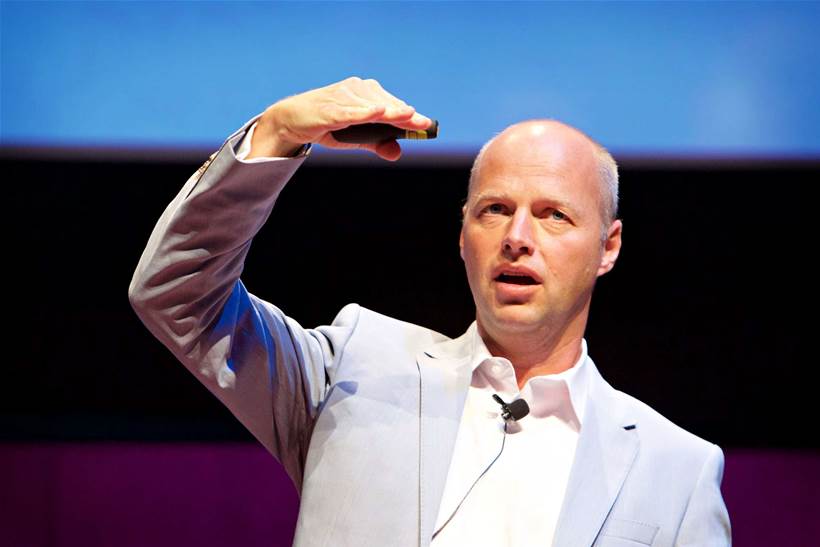Google X founder Sebastian Thrun believes less than one percent of "interesting things" have so far been invented.
"That number looks small but look at the big picture of society. Almost all interesting inventions were made in the last 150 years," he told the Association and Communication Events' Connect 2015 conference in Melbourne.
"One hundred and fifty years in the scale of humanity is incredibly small."
His point is simple: in innovation terms, "we haven't even seen the beginning" of what might be possible: enormous opportunity still exists and can be exploited by those with the right mindset.
"If you take the mindset that almost anything interesting hasn't been invented, then you can go to your business and try crazy things," Thrun said.
Thrun left Google in 2014 but his vehicle for crazy things inside the web giant continues to expand.
Google X is responsible for projects including Loon - a high-altitude mesh network designed to bring internet to all corners of the globe, Google Glass wearable computing, and self-driving cars.
Shoot for the moon
All of these projects qualify as "moonshots" - a Google theory that is really just about thinking big.
"It's really important to us to think logically about what can be accomplished and not be tied down by tradition or the way it's been in the past," Thrun said.
"The way I tease this out of people is by not saying, 'What should we do today?' but 'What do you think will be the case 50 years from now?'
"When you ask what will be the case 50 years from now, then you find that [people are] less afraid of saying it has to fit an existing business model or customer model, [and are] willing to understand something completely different is possible.
"What we did at Google is take this 50-year horizon and make it happen in two years."
Thrun likens the pursuit of moonshot thinking to climbing a mountain that has never been climbed before.
"What you need to succeed is a clear vision - you need to agree on what mountain to climb," he said.
"You'd be shocked how many innovation groups don't even have basic agreement on what they're trying to do, so you have to have agreement - it's really important."
Once you have this, Thrun advises, just start climbing - don't get bogged in planning the climb.
"At the end of the day the mountain is climbed step after step after step, and speculating at the base can only get this far," he said.
"Many people over-plan or over-discuss rather than just go out, try and iterate."
Climbers are likely to face challenges along the way.
"At times there will be bad weather where you can't see the mountain top and you have to trust it's still there and keep going," he said.
"You constantly make mistakes - you reach a false summit and turn around. That might feel depressing but the reality is every time you reach a false summit and turn around you learn something interesting, and you make progress in your quest to the top of the mountain."
The seed of an idea
Thrun's current start-up, Udacity, offers short courses called "nano degrees" that are designed to skill people up quickly on areas of technology, such as developing for iOS.
Although he is already pushing a disruptive technology education model, he wants his staff to keep trying to disrupt his business model.
"I have a wine cellar. Every time a member of my company goes out and does something that could break the company, they get a bottle of my most expensive wine," he said.
"It doesn't matter what the outcome is. If they break the company that's fine - it matters that they're trying.
"People are extremely fearful to take risky steps. It's very easy to feel that you launch something that's not good, it's very hard to be penalised for not launching anything."
While free expensive wine could help tease out ideas, it may not be in your best interests to put ideas out in the open - especially if they end up being workshopped.
"I tell people not to talk, not to communicate," Thrun said. "There's actually a real danger in communicating and it's rarely appreciated by most companies."
The challenge begins when you pitch your "pristine idea" to your boss, who adds his or her own idea to it when they pitch up the chain.
"Before you realise it, your pristine little idea that could launch tomorrow morning now has 15 other ideas attached that you have to fulfil because all your bosses or friends gave you ideas," he said.
Thrun returns to the mountain analogy: "Focus on getting up the mountain, don't focus on telling people you're doing it."
Ry Crozier travelled to Connect 2015 as a guest of Nuage Networks.










